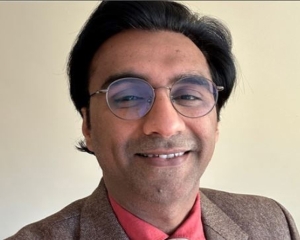Early childhood development is a must for India's progress. It is therefore crucial to ensure the well-being of every child in the country
Early Childhood Care and Education (ECCE) is a crucial component in shaping the future of a nation. In India, a country with a large and diverse population, investing in ECCE is vital for its progress. By providing care, nutrition, education, and a supportive environment, India can shape a brighter future. The country hosts a staggering population of 250 million children aged 0-8, thus, investing in their well-rounded development becomes essential as they will shape the future of the nation, contributing to the vision of a New India. The next 25 years are important for India and our yuva shakti will be the driving force of this transformation, the foundation for which has to be laid today. With this investment, India can promote social mobility, mitigate the rural–urban divide, and build a prosperous nation with empowered citizens.
The importance of ECCE in India cannot be overstated. According to various studies, a significant part of brain development happens before 6 years of age, typically over 85%. These are crucial years for the holistic growth of children as they form the foundation for future learning, cognitive abilities, behaviour, and health. With the various disruptions to early care and education faced during the pandemic, reemphasizing focus in this area becomes all the more important.
Amongst the numerous long-term benefits of primary care and education are enhanced grasping power, and improved outcomes at all educational levels which will eventually lead to higher employability and an improved quality of life. Access to quality early education, proper nutrition, and healthcare services are important components that can help our youth achieve their full potential.
Apart from the effect early childhood care has on early education, from a health standpoint, healthy children grow into healthy adults, reducing the burden on healthcare systems and enhancing productivity. With an improved focus on early childhood development, India can improve the overall health and well-being of its population.
While the Indian government has made great strides in the realm of ECCE in recent years, exemplified by initiatives such as the renewed National Education Policy, which laid more emphasis on the universalisation of primary childhood care, Poshan Abhiyaan, Saksham Aanganwadis, and Beti Bachao Beti Padhao, there still exists a pressing need for collective action.
Fostering public-private partnerships can contribute innovative solutions and models, ensuring holistic support and opportunities. Foundations, CSR, and philanthropic arms of corporate entities play an integral part in mobilizing additional resources for achieving the country’s development goals. Taking a collaborative approach will significantly expedite progress and also ensure sustainable outcomes for the development of children.
We have shining examples of collaborative efforts between organizations, governments, and communities in the impactful work carried out by the Bill and Melinda Gates Foundation, implementing successful models for ECCE, especially in U.P. and Bihar. BMGF has championed innovative strategies to tackle child health and nutrition challenges. Similarly, UNICEF is contributing significantly towards uplifting the education scenario in the country with their motto of ‘Education for all’ impacting children across 17 states. They have collaborated with the state governments and led community mobilization programmes where education indicators are below par.
Akshaya Patra places a strong emphasis on nutrition, as demonstrated by their Mid-Day Meal Scheme, which has ensured regular provision of nutritious meals to 2 million children every day, positively impacting their health, growth, and cognitive abilities. By integrating nutritious meals with education, the non-profit aims to eliminate classroom hunger, enrol more children in schools and reduce the dropout rate, impacting the overall well-being of children.
Another such example of a successful private-public partnership has been Vedanta's Nand Ghar project, a pan-India movement under the umbrella of Anil Agarwal Foundation, which aims to transform the anganwadis ecosystem. This would impact the lives of 2 crore women and 7 crore children through innovative solutions focused on health, nutrition, education, and women empowerment. The project involves revamping the government-run 'anganwadis' or rural day care centres and providing a class model for service delivery in remote villages across 14 states of India. Investing in early childhood development is not only a moral and social imperative but also important for ensuring a prosperous future for India. By prioritising PPPs, comprehensive policies and investments in early childhood development, India can unleash the full potential of its youngest citizens, and create a brighter future for generations to come.
(The writer is widely acclaimed as father of CSR in India. He was instrumental in framing the CSR guidelines for Public Sector Enterprises; views are personal)
























